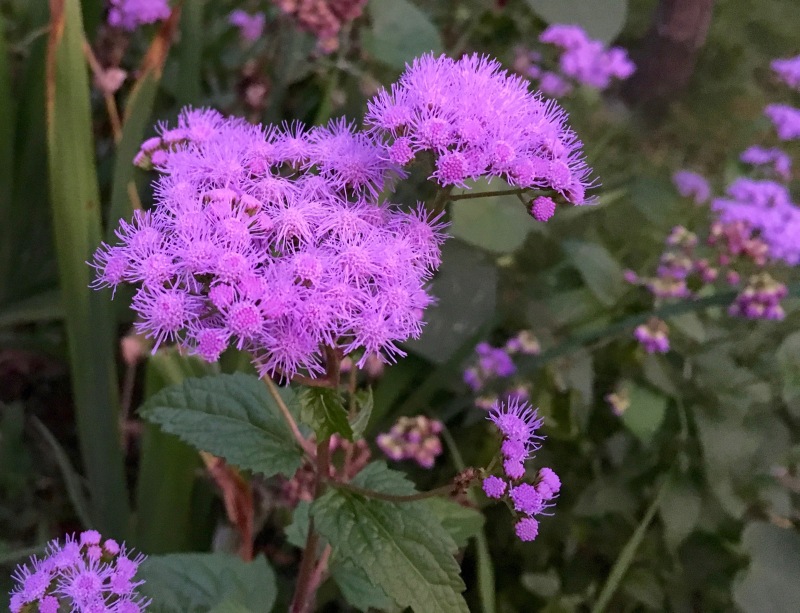
Heliotrope was in a sour mope.
She was the last crayon picked.
She felt as if she’d been kicked. Continue reading


Heliotrope was in a sour mope.
She was the last crayon picked.
She felt as if she’d been kicked. Continue reading
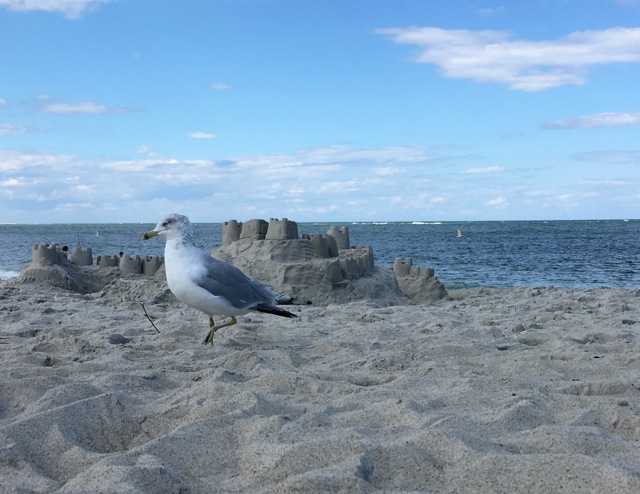
Goodbye, summer.
Goodbye, beach. Continue reading
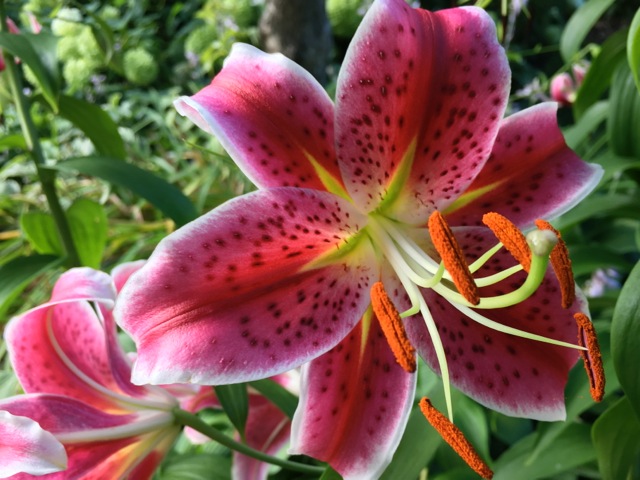
If I were a bee,
this is where I’d be. Continue reading
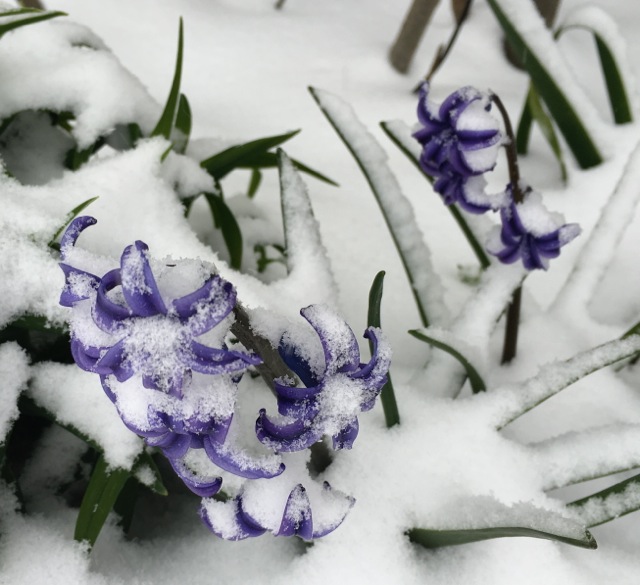
Purple party hats prickle
Continue reading

Tiny O’Toole loved a kitten.
He felt himself hard bitten.
“Ouch!” he cried.
“Open wide!”
He stuffed her in his mitten.
“Now, that’s not fitting’,”
complained the kitten.
“Let me out
or I’ll shout.
After all, I’m no Briton!”
O’Toole sipped mead,
and then he agreed:
“Come out!
No doubt
you mistook me for tweed.”
Copyright 2016 Brenda Davis Harsham
Notes: Happy St. Patrick’s Day! The art work is a stained glass plate I made with my daughter. A limerick is a light-hearted poem with the rhyming pattern AABBA. A lines are shorter than B lines. My all-time most viewed post is Leprechaun Limerick. I also wrote a set of three limericks on being Irish.
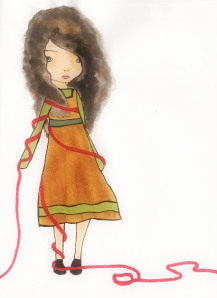
By Anja at Oh Pithy Me
As Megan wove sprigs of lilac into Bella’s black hair and then pinned her veil in place, she asked: “Bella, remember the witch and the red string?”
Bella was hooking pearls into her ears, but she stopped for a moment as memory overtook her. Megan and she had been friends their whole lives. One spring day, Megan’s mom had bribed Megan’s big brother, Stefan, to take the girls to the ice cream parlor. They passed the witch’s house on the way.
Peeling paint and rotted gutters had festooned the ancient Victorian behind the low juniper hedge, and all the neighborhood children believed a witch lived there. The three had stopped and looked up, Megan with a delicious shiver. Crows flew out of a nest by the chimney, cawing loudly.
“I dare you to go ring the bell,” Megan liked baiting her older brother, Stefan, to do things that got him in trouble.
Shh!
Hide,
Fairies!
Hold fans high
Pretend we’re cabbage,
Think ornamental vegetable!
No more chorus line once music stops and fae-folk hide.
Slowly, as night dons its purple, starry cloak, the fae ball resumes, with pipe, fife and song.
Copyright 2013 Brenda Davis Harsham
Note: A Fibonacci Poem is one in which each succeeding line is equal in syllable length to the syllable length of the preceding two lines added together, or one, one, two, three, five, eight, thirteen, twenty-one, thirty-four, etc.
Dear Joanie,
I arrived safely, and my company has given me a nice hotel. It’s fall here, too. I should be home soon. Take care of mommy.
Love, Daddy
father gone too long
black marks on paper not enough
leaves falling slowly
Dear Joanie,
I hiked high up a mountain Saturday in the morning mist. The mist receded before me, always out of reach. My contract has been extended, and I will be here at least another month. I miss you. Will you please write me more often?
Hugs, Daddy
mother sad and still
sitting by the cold window
white snow blowing past
Dear Joanie,
My heart is with you, but I have to stay a little longer. The temple bells wake me in the morning. I’m working long hours to return home to you. Tell your mother I love her.
Fondly, Daddy
cold empty playground
wind singing and swaying swings
dad played soccer here
Dear Joanie,
I so appreciated the photographs and book you and Mommy sent for my birthday. It lightened by heart, just as the sun is warming the ground and calling forth buds. My project is finally finished! I will be home in a week after a few more meetings!
Love, Daddy
sunshine glints brightly
ocean waves beat against stone
Japan behind mists
Dear Joanie,
Thanks for your joyful letter. I’m so happy spring has arrived. Here, the trees have leafed up, too, and the grasslands wave in the mountain breezes. The air is fresh, and smells of flowers. The final meetings took longer than I thought. One more week, and I will be home. Here is a picture of the view from my window. I think of you every day.
I love you and miss you, Daddy
heron rose from reeds
salt marsh seagulls call hello
sun sets on absence
Copyright 2013 Brenda Davis Harsham
Prepared from art by Suzanne and inspired by the Haībun weekly prompt. Also written for the DPChallenge, which I have never tried before. Although I write haiku, I have never paired them with a letter-writing prose style, so this was a departure for me. I’m writing all five haiku in one go because: Thanksgiving and Hanukkah and Blogging, oh, my!
Maybelle had often admired the red mushrooms mansions, where she imagined only the very luckiest of fae could live. She liked to imagine the quiet with only a few neighbors. She had been living in a fungus highrise since she was born, surrounded by constant noise and banter.
Sylphanya, her sprite-mother, was hardly ever home and wanted different things than Maybelle. Her mother cared only for painting autumn leaves whereas Maybelle was drawn to water blossoms. Her mother seemed to like having a hundred neighbors, singing out happy hellos to everyone.
Maybelle knew the other fae-children thought she was a bit odd. Her near-neighbor Jamus called her a loner that morning because she hardly ever joined him and his sister, Dolpha, for nectar in the berry bar.
Maybelle was sad all day, not even the rainbow tints of a new lotus bloom cheered her. Maybelle decided to find her mother. Continue reading
On October 22, Friendly Fairy Tales announced the publication of a new, previously-unpublished story, The Day the Dragon Flew up the Chimney, on The Paperbook Collective October 2013 Issue 3.
Click to read Part 1. As promised, here is the Final Part:
Henry decided he’d better keep an eye on the dragon, so he followed it closely. The dragon was flitting from chair leg to chair leg. He would hop up onto chair arms or tables and eat the food right off people’s plates and drink the tea right out of people’s cups. Everyone was so busy talking that no one noticed a thing.
Then the miller’s wife reached for one of her cookies, only to find that it had disappeared. “That’s odd,” she said.
“Miss Miller, Ma’am,” said Henry. “A dragon has eaten your cookies.” Meanwhile the dragon had moved on to Phileas Farmer’s plate.
“Henry!” scolded his mother. “Stop telling fibs and don’t filch people’s cookies. Now for the last time, go and play. Honestly.”
“But Mama,” protested Henry. Sadly, his mother just shook her head at him and waggled her finger. If his mother wouldn’t believe him, who would? Henry watched as the tiny dragon plundered the room of its teacakes, its cookies, its biscuits and its tea with cream. A hum of conversation arose as more and more villagers were puzzled to discover empty plates and cups. Henry wondered how such a tiny dragon could eat so much.
Then the dragon had the temerity to steal from his father’s plate, and that was more than Henry could bear. “Daddy, Daddy,” cried Henry. “The dragon is stealing your biscuits!” The whole room stopped to stare at Henry. Henry’s father seemed very embarrassed.
“Henry, I told you not to fib!” cried his mother, standing up.
“But I’m not!” Henry replied.
“Then where is the dragon,” asked the mayor with one last laugh. Henry pointed at the hearth where the dragon perched, fickety-mickety finishing up the last chocolate from the plate of Mrs. Farmer. The fire had died down a little, but he was still clearly visible against the glow.
When the dragon noticed everyone staring at him, he gulped down the cookie and flew straight up the chimney.
Everyone gave a gasp, and the mayor and several aldermen raced over to try to look up the chimney. No one could see anything for the fire and the smoke.
Henry’s mother and father came and gave him hugs and apologized for doubting him. The villagers all patted his shoulders and told him how brave he had been. He was the village hero thereafter. And when Henry grew up, they elected him mayor. To this day they tell stories of the day the dragon flew up the chimney.
THE END
Copyright Brenda Davis Harsham April 1, 2005
I was born in Namibia in the heat of the summer sun, outside a homestead beside the Kunene River, many miles from the Skeleton Coast. Mukuru blessed my beloved Namibia with music, dancing and poetry.
homestead in grasslands
waters flow like gold blessings
river meeting sand
My young mother glistened with the traditional red ochre called otjize, which she made from the Omuzumba shrub in the way her mothers and sisters have done since a time beyond memory. Grandfather, the headman, tended the okuruwo, the sacred fire, feeding it Mopane branches. He had not let the fire die for sixty years. Over the fire, he spoke to his ancestors. Nearby, his daughter sat quietly, her braids shading her face, listening to music ripple like heat waves. His music drew my spirit down, and I sang my song to her, her braids sliding along her neck as she lifted her face to the sky.
red braids, shining face
your magic called me to earth
my song filled your ears
Sitting in stillness beside the Mopane in the meagre shade, she first heard my song. Her face shone with the light of the powerful desert sun. She listened carefully, and with her natural musical talent she quickly learned my song. I returned to my long dreaming, but she continued to sing my song. She called my spirit from the dreaming land back to the earth. The women welcomed me on the day of my birth, singing my song through the long hours of her labor.
first gasp of hot air
I cried from surprise, alone
watery world gone
You nourished my spirit, Mother of my earthly body. When I was sad, my mother sang my song, and my spirit remembered the dream land. I joined my song to the songs of the villagers and those of my sisters and brothers. I learned to tend the cattle among the men, but I thought often of my mother. When a lion came for the cattle, it scared me. I held my fear tight until my mother and the villagers sang my song, and my spirit soared high again. In dry years, the cattle grew thin in the high reaches, but the river sustained us like my mother sustained me. Always the cattle could find grass by the Kunene.
water is precious
waters draw grassland from sand
liquid sky, god’s gift
Copyright 2013 Brenda Davis Harsham
Written for the weekly Ligo Haibun challenge (making Fridays more beautiful for us all).
Articles used in writing the story:
http://theperfectbirth.wordpress.com/2013/04/22/the-himba-namibia-the-birth-song/
http://birthpsychology.com/free-article/very-early-parenting-african-model-childs-song
http://www.newafricanfrontiers.com/namibia/country-info/people-of-namibia
http://en.wikipedia.org/wiki/Himba_people
http://ngm.nationalgeographic.com/ngm/0401/feature2/index.html?fs=www7.nationalgeographic.com
 “And then there are the times when the wolves are silent and the moon is howling.”
“And then there are the times when the wolves are silent and the moon is howling.”
— George Carlin
Autumn leaves tapped the small windows. Elspeth blew the dust off the book. She knelt amidst generations of clutter and debris in the Martin family attic. She was looking for a costume, because Halloween was that night. On the leather book cover was burnt a full moon surrounded by a five-sided symbol. As the dust settled on old crocheted blankets and old-fashioned high chairs, she opened the book at random.
hidden in the trunk
voice rusty with disuse
still with much to say
“Scarab powder, dash of scaly rot, and ground bat bones sprinkled on seven squashed wolf spiders. Stir widdershins under a howling moon with a finger of oak. Stroke quarter over the main mast and quarter on the crow’s nest. Every particle that remains, seal in wax and burn until gone in the hold. Soon will come to you a strong headwind, fair weather and enemy bane. Beware shoal and reef, but raise proudly your flag, for safe port you will make, wise cargo making your fortune.”
seek the howling moon
sailing toward future fortune
magic within you
Fate had brought her to her ancestor’s spellbook, and fate denied becomes foe. Elspeth decided to be a witch for Halloween. She had no immediate need for a sailing spell, but perhaps it could be adapted for her car. Elspeth embraced the book, and put it back under the crocheted afghans in Grandma Demeter’s favored avocado and pumpkin colors. Grandma Demeter had always seemed to have a charmed life. Now Elspeth knew why.
hold close heritage
its magic will come to you
when fate brings you home
Copyright 2013 Brenda Davis Harsham
Prepared from the weekly Līgo Haībun challenge. Please visit them if you want to see some great writing!